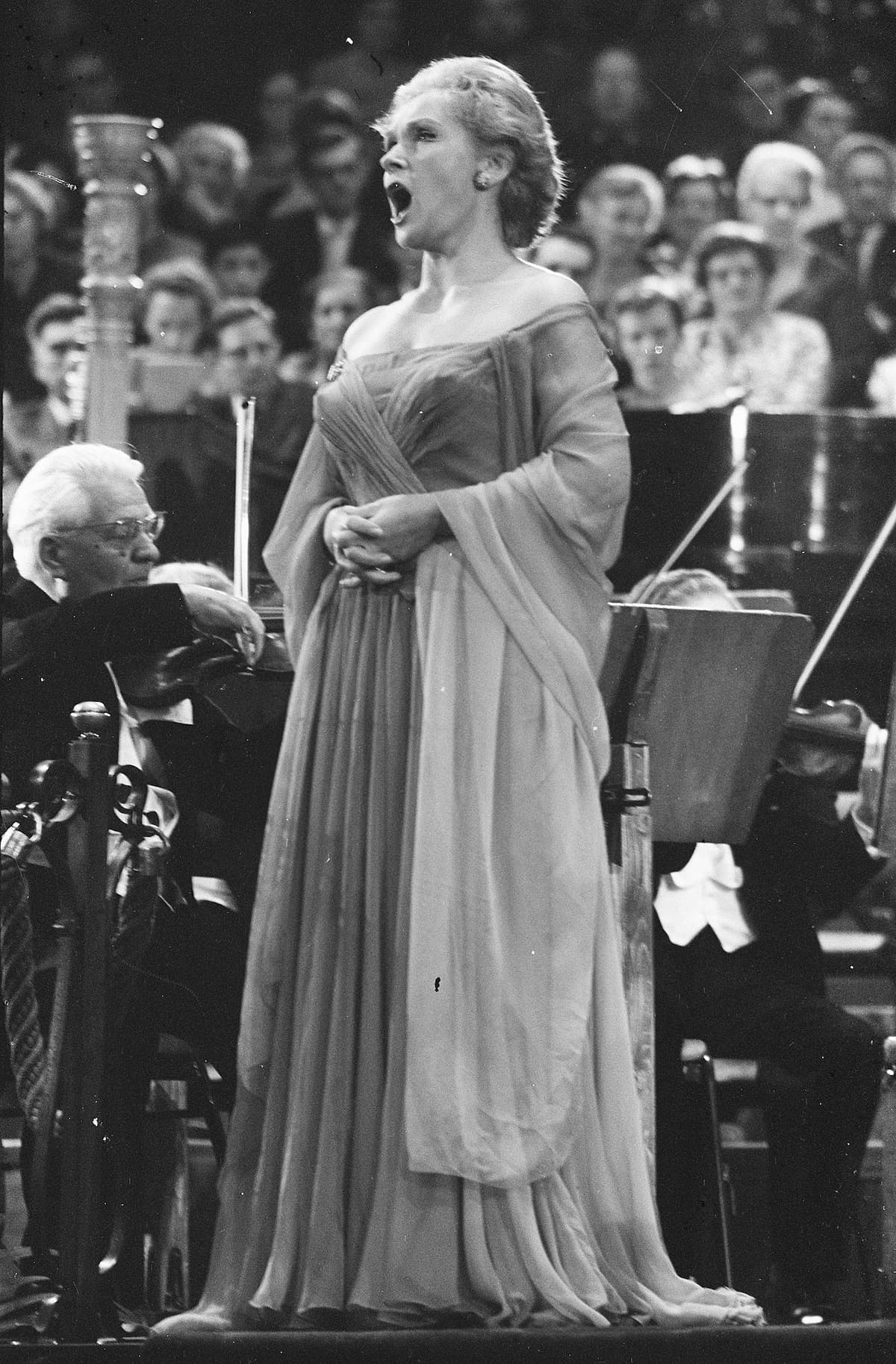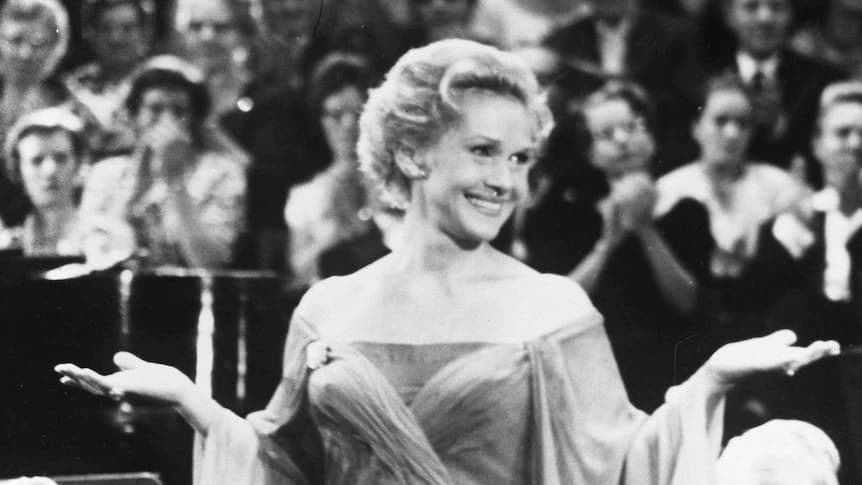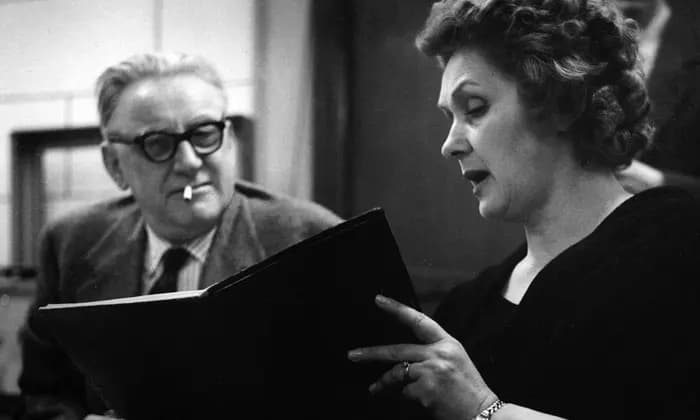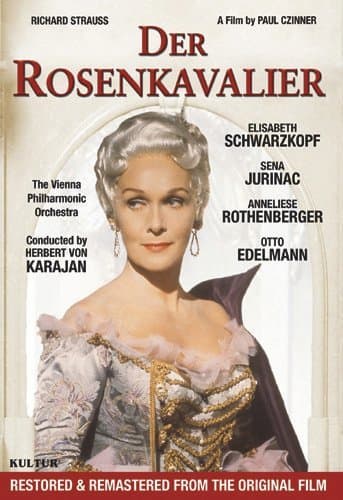Olga Maria Elisabeth Frederike Schwarzkopf was born in Jarocin near Poznán, then Germany, now Poland, on 9 December 1915. She was to become the pre-eminent female lieder singer of the post-war decades and an operatic artist “in whom personal beauty, beauty of tone and line, and rare musical intelligence were combined.” Schwarzkopf always took the greatest care in her interpretations and execution, and her powerful lyric soprano, full-bodied, warm, and flexible, was described as a voice with “indescribable beauty.”
Elisabeth Schwarzkopf Sings Mozart’s “Exultate, Jubilate”
Growing Up

Elisabeth Schwarzkopf performing in Amsterdam, 1961
Elisabeth’s father, Dr. Friedrich, was described as an easygoing intellectual, and he raised his daughter in a conventional middle-class surrounding. The family was Prussian and Evangelical, and music and the arts played an important role. Her mother Elisabeth née Fröhlich was in charge of the household and of her daughter’s career. Elisabeth grew up in the shadows of WWII, in an era of uncertainty and change, and the family moved household countless times.
Musically talented, Elisabeth took piano lessons and eagerly studied the guitar, viola and organ as well. By 1928, Elisabeth was already thinking about a career in music as she was a skilled pianist, but more importantly, she had developed a pretty high voice that allowed her to take part in local concerts and amateur performances. In that year, she performed in her first opera, “Eurydice,” in a school production at Magdeburg of Gluck’s Orfeo.
Franz Schubert: Im Frühling, Op. 101, No. 1, D. 882 (Elisabeth Schwarzkopf, soprano; Edwin Fischer, piano)
At the Berlin Hochschule für Musik

Her mother quickly decided that Elisabeth would have to be properly trained as a musician and that such education was best achieved in the Prussian capital, Berlin. When Elisabeth turned seventeen years of age, the family moved to Berlin, and after graduating from High School, she immediately applied for entrance to the Berlin Hochschule für Musik. Prior to settling down to serious study, Elisabeth took a biking and hiking holiday in England to learn the language.
The most famous faculty in the voice department was Lula Mysz-Gmeiner, who had been an adored mezzo and Lieder singer. At Brahms’ recommendation, she had been a student of Lilli Lehman, and Hugo Wolf apparently accompanied her in recitals of his Lieder. Schwarzkopf had been to a Mysz-Gmeiner recital at the Berlin Philharmonie, and she was impressed by her “ability to colour and underline the innermost meaning of a song by purely vocal and facial resources.”
Elisabeth Schwarzkopf Sings Wagner’s Tannhäuser (excerpts)
Studying Under Lula Mysz-Gmeiner

Elisabeth Schwarzkopf and Walter Legge
Schwarzkopf was delighted that she had been assigned to Mysz-Gmeiner as her professor. As a biographer wrote, “she was even more surprised and far less delighted when the great teacher immediately became convinced that her new student would be another mezzo, and she began training Elisabeth accordingly.” Possibly, Mysz-Gmeiner heard in Schwarzkopf’s voice echoes of her own youth, and she sternly continued her approach. Fortunately, her approach did not do any actual damage to Schwarzkopf’s voice, but she hated every second of her voice lessons.
Schwarzkopf sang at public concerts with other students, presenting works by Brahms, Bach, and Reger. And she finally convinced her mother to support a change of teacher. The director of the Hochschule would hear none of it, but Frau Schwarzkopf disagreed and won. The situation needed to be handled tactfully to avoid causing embarrassment to Mysz-Gmeiner, and eventually, Elisabeth was asked to submit to study with Dr. Egonolf and Maria Ivogün, whom she regarded as her real teacher, with both expressing confidence that Schwarzkopf was going to be a coloratura soprano.
Hugo Wolf: Italienisches Liederbuch (Elisabeth Schwarzkopf, soprano; Gerald Moore, piano)
Joining the Deutsche Oper Berlin

Elisabeth Schwarzkopf in Strauss’ Der Rosenkavalier
Schwarzkopf joined the Deutsche Oper Berlin, located in the Charlottenburg district of the city. in 1938. She had auditioned for a part in a new production of Parsifal but had only thirty-six hours to prepare for the role of “Second Flower Maiden.” Her mother was delighted as Elisabeth easily learned the score and all her moves on stage. She much enjoyed singing on such an important stage, and on 15 April 1938, Schwarzkopf became a probationary junior soprano at the Deutsche Oper Berlin.
Having gained employment at the Deutsche Oper Berlin came at a cost, however. One month after arriving at the institution, Schwarzkopf joined the NSDAP, the Nazi Party. Initially, she signed a form stating that she came from an entirely Aryan family and that she had never been connected with the Jewish fate. Another declaration established the racial purity of her parents and grandparents, and by December 1940, she was sent her official Berlin Party number and her Party logbook required for Schwarzkopf to be awarded a full contract at the Opera House. Her relationship with the Nazi Party is still being discussed and debated to this day. Her vocal qualities and professional success, however, are surely beyond reproach.
For more of the best in classical music, sign up for our E-Newsletter
Richard Strauss: 4 Letzte Lieder (4 Last Songs), TrV 296 (Elisabeth Schwarzkopf, soprano; Berlin Radio Symphony Orchestra; George Szell, cond.)
